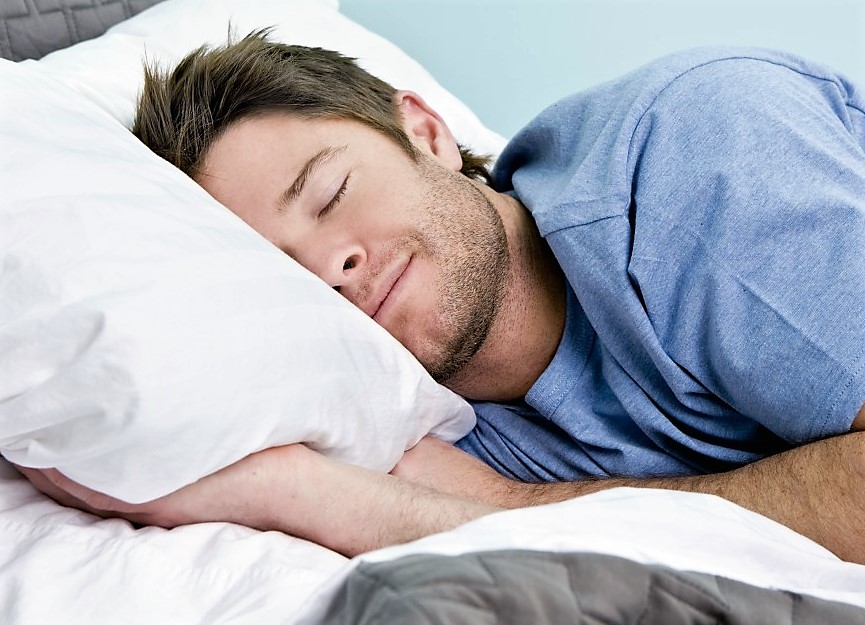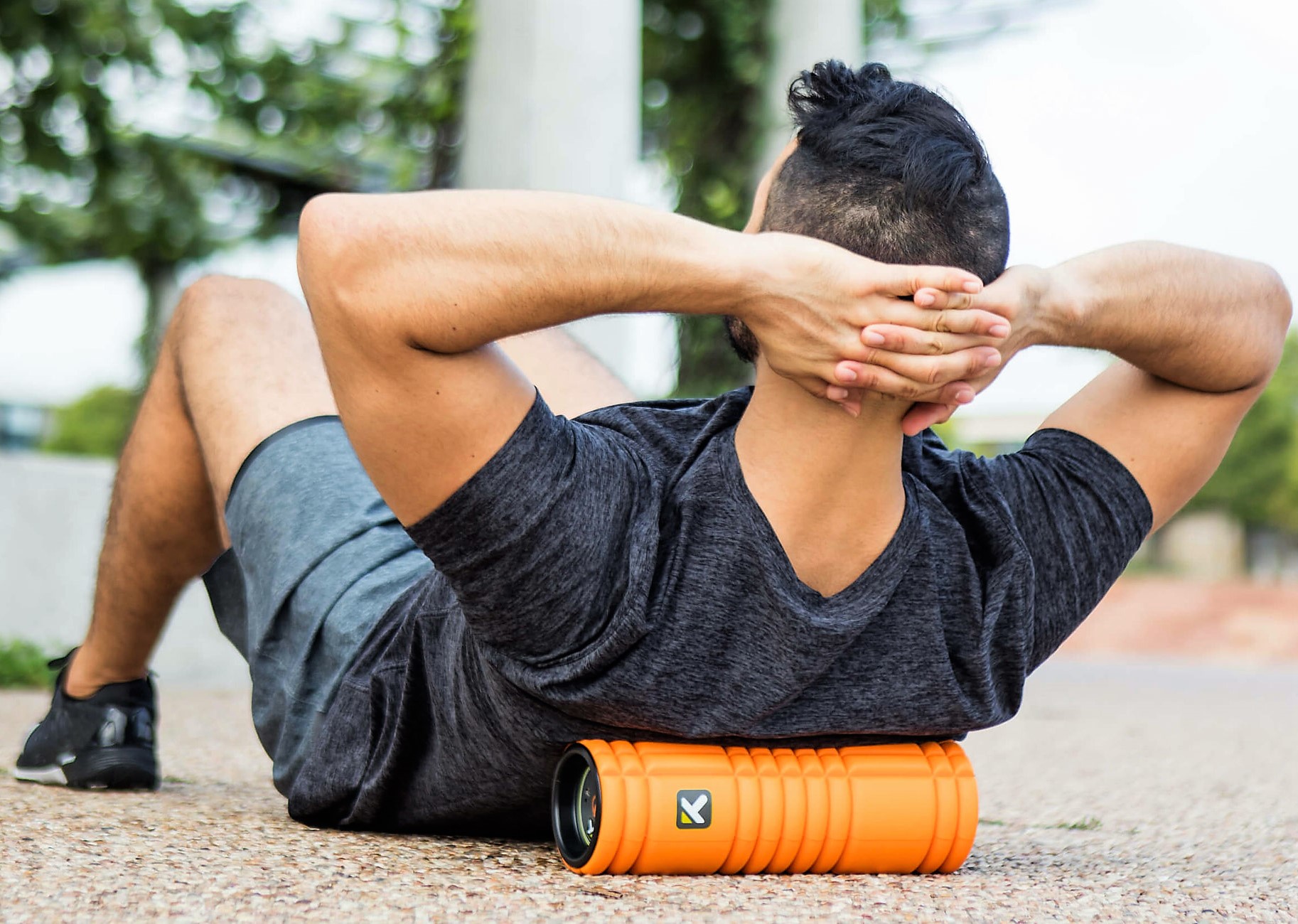I don’t typically go for titles like these, but I feel like powerlifting recovery is one my pet topics insofar that I find it’s fairly underrated because we don’t like to talk much about it. Recovery isn’t sexy or fun unless someone finds a way to make it sexy and fun, but that way tends to be inferior to what works – which, as I’ve mentioned, isn’t sexy or fun.
So, I’m here to berate you for what you might be doing wrong to inadvertently sabotage your recovery: the most important part of the training process when building muscle and strength. Thankfully, these are powerlifting recovery strategies that you doubtlessly already know – but aren’t taking seriously.
Consider Your Circumstances
Yep, we’re coming right out of the gate with the one-two punch of existential ennui and genetic destiny. Powerlifting is a sport, and very few lifters are athletes. This means we need to make our money some other way, which typically involves having a job that takes at least about a third of our day (plus time spent in commute). On top of that, there’s the family, the cleaning, the cooking, and the errands. The average person doesn’t have a nanny or a butler or a helper, so we have to find ways to maximize efficiency within the day to barely squeeze in an hour or so of training.
If your job involves manual labor, you’re likely coming off work tired and beat up. If your job is one where your manual labor is coupled with an occupational hazard such as a back injury or knee pain, that’s an extra burden on your body on top of your training.
Of course, other lifters are luckier. They might be in a position to afford to spend a few hours a day on training and recovery. Maybe they live with they’re parents, or they’re simply well off.
Our capacity to train should ideally be informed by our capacity to recover from that training, and some of us can afford to recover far more than others. There are other uncontrollable factors at play here, like sex, age, and genetics. If you want a good tip for powerlifting recovery, please be realistic with your ability to recover versus your ability to train.
Otherwise, you’re training yourself into an injury – and that won’t just grind your training to a halt, but potentially affect your ability to be a provider and caregiver for others around you.
With that out of the way, let’s get into how to prioritize recovery and learn to make progress in a smarter, more sustainable way that matches your circumstances.
Stop Setting an Early Morning Alarm Clock
Some of us are early risers, and some of us tend to sleep in a bit, but we all sport two biological clocks – one that’s essentially constantly ticking in our brain, and one that corrects the first one by way of external factors, most importantly sunlight. However, two relatively modern inventions seriously mess up both clocks: the first is caffeine, the second is display light.
I should mention that the effects of caffeine on sleeplessness and rest differ from person to person. Some people can’t fall asleep at night after a cup of coffee in the morning, and some people drink five cups over the day (with one in the evening) and still hit the hay the same time each night. That has a lot to do with caffeine sensitivity and the rate at which we metabolize the stimulant, which varies so drastically that it can have a half-life of less than an hour for some people, and over half a dozen hours for others.
Display light is another common issue, and one that has an unpopular yet important fix – STOP TAKING YOUR PHONE TO BED.
We’re so used to checking our mail, our Twitter, our Facebook, our Instagram, and YouTube before bed that we end up spending a significant chunk of what should time spent sleeping lying in bed browsing the web. Even with a dimmed display, the light can fool your brain into thinking it isn’t time to sleep yet.
This brings me to the point of the subheading – if you need an alarm to get yourself out of bed, you probably aren’t sleeping enough.
Many of us don’t have the luxury to not set an alarm. Maybe the reason you don’t get enough sleep has nothing to do with your phone or your coffee, but more to do with the fact that you have a screaming baby one door over, or that browsing YouTube keeps you from struggling to sleep all night due to anxiety issues.
Whatever it is that’s robbing you of your precious sleep, if it’s a matter of habit please change that habit. If it isn’t, then take into account that this will impact powerlifting recovery and performance, both physical and cognitive.
Know Your Recovery Will Tank in a Deficit
If you’re in a deficit (to lose weight) after you’ve spent any amount of time training in surplus, know that it’ll be a little harder to make progress. The degree to which it will be harder might not be too noticeable for some, while it could lead to a hard stall and a forced switch in programming for others. That depends on individual factors, including the intensity of the cut.
Just know that when you aren’t getting in extra calories (i.e. more than you need), your body stops being quite so liberal with how it allocates its resources, and it starts to prioritize the critical stuff over things like exercise performance and strength. This also affects muscle synthesis. I’m not saying you can’t build muscle in a cut (unless you’re quite lean, to begin with), but we know that you’ll build less muscle and you’ll take longer to recover from bouts of high-intensity exercise.
CNS Fatigue is (Probably) Not A Problem
CNS fatigue is, as far as we know, probably bro-science. It takes a lot to fatigue your CNS, and heavy (really heavy) compound lifts are unlikely to do it. CNS fatigue is far more common in marathon running and extreme endurance sports, and even there it isn’t something you’re likely to see all the time. Even high-volume high-intensity training in trained athletes didn’t induce signs of CNS fatigue.
Before you go blaming your CNS on feeling beat up after a deadlift, maybe just recognize that you’re feeling beat up. Not because your brain is tired from an incredible neural load of heavy lifting, but because everything else is (your soft tissues in particular).
What does this have to do with recovery? Well, it’s just to point out that you don’t have to worry about CNS recovery, and that you’ll recover just fine from the usual stuff – rest, ice or compression if your joints are achy, maybe some camphor and a nice meal, and most importantly, some good ol’ “me time”. Yes, mental stress affects powerlifting recovery. A lot as mood correlates with performance (i.e. the worse you feel in the head, the worse you’ll do).
Don’t Sweat the Small Stuff (Seriously)
There are countless little factors, tweaks, and changes that might make minute differences in things like muscle soreness, muscle glycogen stores, muscle repair, and so on. However, none of them have the impact of eating at maintenance or surplus while getting enough sleep and water. None.
You can have your post-workout supplements, take your caffeine for its ergogenic benefits, and take your peri-workout nutrition in the form of a couple of grams of carbs for optimal performance and post-workout powerlifting recovery – but it’s still fairly negligible to the basics, which we often neglect because it’s boring, or hard.
Want to lift heavier and avoid injuries? 💪🔥
Download our FREE '5-Minute Warm-Up Routine for Maximum Lifting Performance' and get primed for every workout!
Click below to grab your copy now!👇
👉 Download the Free Guide



